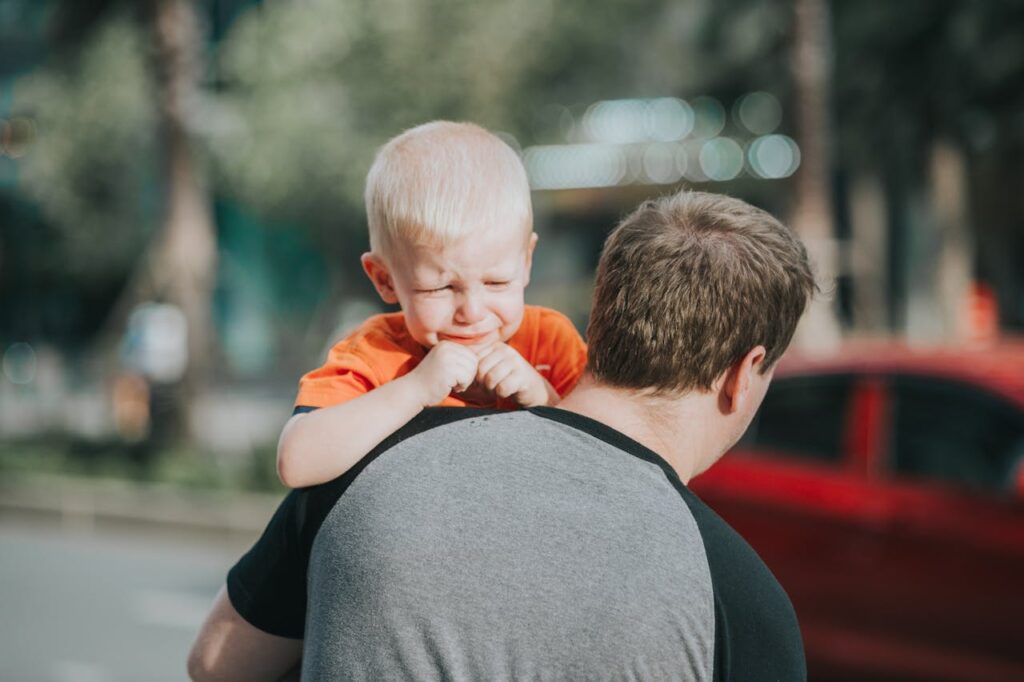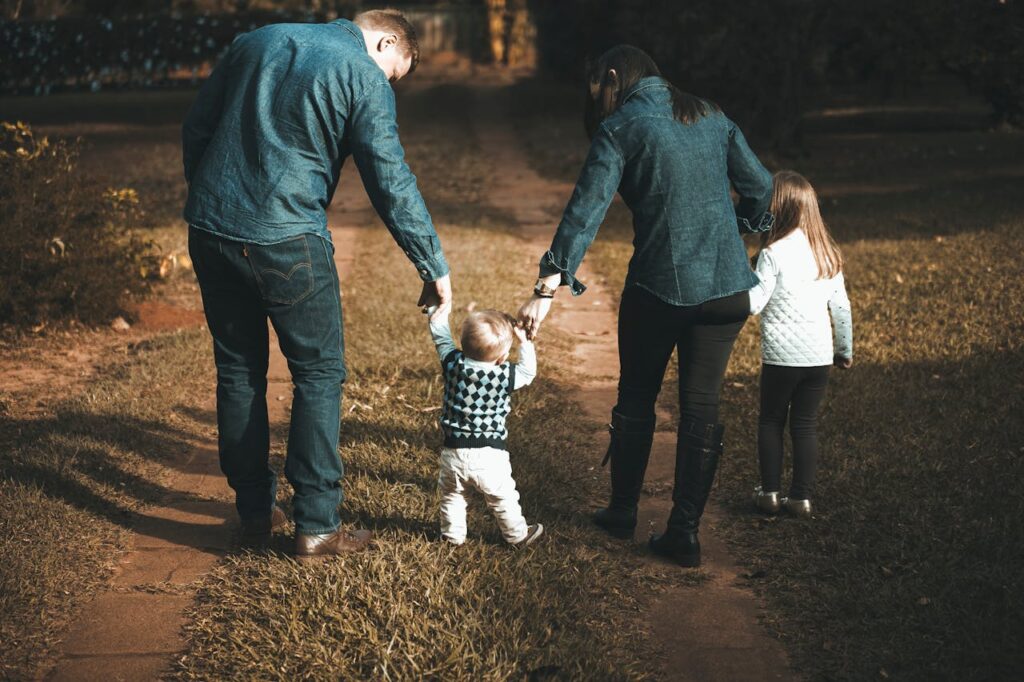Parents Who Are Codependent With Their Adult Children Exhibit These 10 Behaviors

Every parent wants the best for their child. We pour our hearts into nurturing, guiding, and protecting them. But what happens when love becomes something else? When care becomes control, when devotion becomes dependence, and when our children’s lives begin to feel like an extension of our own?
This is the silent struggle of parent codependency.
It doesn’t always shout. Sometimes it whispers in the late-night worry, in the “I’ll just do it for you” gesture, in the guilt trips we don’t even realize we’re planting. On the surface, it looks like love. But beneath, it can suffocate growth.
So the question is not “Do you love your child?” The real question is: “Does your love set them free—or does it hold them back?”
What Parent Codependency Really Means
Every parent hopes that love will help their child bloom. Yet sometimes, without meaning to, that very love can transform into something more like an anchor. This is parent codependency: where a parent’s identity, self-esteem, or emotional balance becomes entangled with their child’s life. It is no longer just care, it becomes emotional holding on. According to Medical News Today, codependency has been described as relationship addiction, because individuals with codependent tendencies often become entrenched in one-sided, emotionally draining relationships under the guise of love.

This dynamic is more than theoretical. It has roots in lived experience and science. Research shows that distressing childhood environments, especially those involving parental alcohol misuse or emotional maltreatment, can set the stage for codependent patterns. In a 2009 study published in the American Journal of Family Therapy, adult women who grew up with both parental alcohol problems and emotional abuse reported poorer emotional and relational well-being than those exposed to alcohol issues alone. A UK-based qualitative study from 2021 found that adults in support groups often traced their codependent behaviors, such as over-responsibility or anxious caretaking, to childhood homes marked by emotional absence, rigid control, or instability.
Another underpinning is unresolved developmental trauma, where inconsistent or emotionally absent caregiving disrupts normal emotional growth. This can impair self-regulation and heighten emotional fusion, contributing to adult patterns of caretaking or over-involvement—hallmarks of codependency. Empirical findings reinforce these dynamics. A study investigating how family dynamics and social support relate to codependency found that adults with poorer family function and weaker support systems exhibited stronger codependent tendencies, regardless of substance misuse history.
Viewed through this lens, parent codependency isn’t a moral failing—it’s an adaptation to emotional environments that taught closeness over separation. It blossoms from a distorted kind of love, where fear overshadows trust and a child’s independence threatens a parent’s emotional security. Left unchecked, it can hinder children from making mistakes, discovering who they are, or building confidence in their own decisions. Seeing this pattern clearly does not mean you are a bad parent. It means you are ready to heal, to let your love nurture freedom, not fill hollow spaces.
The 10 Hidden Behaviors of a Codependent Parent
Codependency in parenting often hides in everyday habits. Naming the pattern clearly is the first step to changing it.
1. Living Through Your Child’s Choices
When a parent pushes their child toward dreams that the parent once abandoned, it subtly erases the child’s own voice. The pressure may come wrapped in encouragement, but the message is often “finish what I couldn’t.” Research on intrusive and overinvolved parenting finds that children under such pressure may delay forming their own identity or struggle with decision-making. In extreme cases, children may withdraw or rebel as their individuality feels suppressed. Recognizing this dynamic is the first step toward stepping back and inviting the child to lead.
2. Needing to Be Needed
When a parent’s sense of worth depends on the child’s need, the child becomes the keeper of the parent’s validation. This creates an unspoken contract: the child must stay reliant to keep the parent whole. A Study using validated codependency scales show that this need for dependency is closely tied to fragile self-esteem in parents. Over time, the child senses the emotional burden of “keeping mom or dad whole” and may feel guilty just by growing independent. Realigning emotional boundaries begins with rebuilding a parent’s self worth outside of caretaking.
3. Control Disguised as Care
Stepping in to complete tasks for your child can feel helpful, but if done continuously, it communicates “you can’t manage without me.” Over time, this erodes the child’s confidence and stifles their ability to self-regulate. Developmental psychology research makes a clear distinction between autonomy-supportive parenting and controlling behavior, with the latter linking to increased anxiety and reduced coping skills in children. If your help is preventing your child from learning to solve problems, it may be time to step back. Parenting with trust lets children develop resilience.
4. Sacrificing Other Relationships
Pouring all your emotional energy into your child might feel like devotion, but when it pushes aside your partner or friends, it cuts off vital support. This narrow focus can leave both the parent and child emotionally under-resourced and overly reliant on each other. Meta-analyses in family studies consistently link poor couple functioning to increased stress and reduced parental effectiveness. The emotional cycles between parental partnership and parenting directly affects a child’s sense of security. Cultivating outside emotional connections strengthens your capacity to be present with your child.
5. Manipulating Through Guilt
Subtle guilt—phrases like “after all I’ve done for you” or deliberate silent treatment—can steer behavior more effectively than direct command. Children respond not from choice, but from obligation, which chips away at their autonomy. Studies on guilt induction in parenting find significant links to increased adolescent anxiety, depressive symptoms, and secretive behavior. This method might work in the moment, but it erodes trust and emotional authenticity over time. True respect is born in open communication, not silent coercion.
6. Playing the Victim
Sharing struggles can build empathy, but when pain is repeatedly framed to solicit rescue from your child, the roles reverse. The child may feel burdened, assuming emotional responsibilities beyond their years. A systematic review on parentification confirms its strong association with emotional distress, anxiety, and troubled boundaries in adulthood. Instead of guiding from the top, your child is forced to grow up too fast. Healing starts with recognizing that children need care, not caretaking from the child.
7. Blurring Boundaries
Fear of upsetting your child may lead you to let them break rules repeatedly. Over time this pattern weakens respect and creates insecurity about what’s expected. Pediatric research highlights how inconsistent or permissive discipline increases the risk of behavioral and emotional problems. Consistent and fair boundaries are the scaffolding for trust and safety. By reinstating age-appropriate limits, parents model respect between independence and guidance.
8. Projecting Emotions
When a parent’s unresolved anxiety or grief colors interactions, children may unwittingly internalize emotions that were never their own. This emotional transfer can distort a child’s developing sense of self. Meta-analytic reviews document how parental depression or anxiety—especially when undiscussed—links to heightened child emotional and behavioral issues. The child becomes a vessel for emotional burdens they did not carry in the first place. Encouraging your own emotional healing offers relief to both you and your child.

9. Authority Without Accountability
When a parent mistakes questioning for disrespect, it shuts down conversation and breeds fear. A rigid insistence on being always correct diminishes trust and open communication. Parenting research shows that authoritarian styles—high control with low responsiveness—are associated with increased internalizing symptoms and lower self-confidence in children. Leadership with humility, on the other hand, fosters secure attachments and models healthy relationships. True authority invites respect, not fear.
10. Denial of the Pattern
Defensiveness when suggestions of unhealthy patterns arise signifies a barrier to change. Denial shields us from shame, but it also blocks access to healing and support. Reviews in clinical research identify weak problem recognition and stigma as major barriers to seeking help. Without acknowledging that something is off, a family stays locked in the same emotional patterns. The first step to transformation is saying, “Maybe I need help.”
Well-Being and Personal Development Beyond Codependency
Codependency in parenting often erodes the parent’s own well-being. When identity and self-worth depend on a child’s choices, stress and burnout follow, creating a tense home environment. Research shows that parental distress directly affects children’s emotional health.
Focusing on personal growth helps break this cycle. Parents who maintain friendships, pursue hobbies, and set personal goals experience improved mood and reduced over-involvement. These behaviors also model healthy independence for children.
Therapies that teach boundary-setting and emotional regulation, such as cognitive-behavioral therapy or mindfulness-based interventions, have been shown to reduce codependency and strengthen resilience. Rebuilding self-esteem and identity outside of parenting allows love to shift from control to support.
Breaking codependent patterns is personal development in action. By prioritizing your own well-being, you free your child to build theirs.
The Courage to Let Go
Codependency in parenting is not love—it is fear disguised as devotion. It is a pattern shaped by past wounds, but it does not have to shape the future. Research shows that when parents rebuild boundaries and care for their own well-being, family relationships grow stronger and healthier.

Letting go does not weaken the bond. It strengthens it. Love becomes freedom, not control. By investing in your own growth, you give your child the greatest gift: the example of a whole and independent adult.
The real courage of parenting is not in holding on—it is in trusting enough to let go.
Loading...

